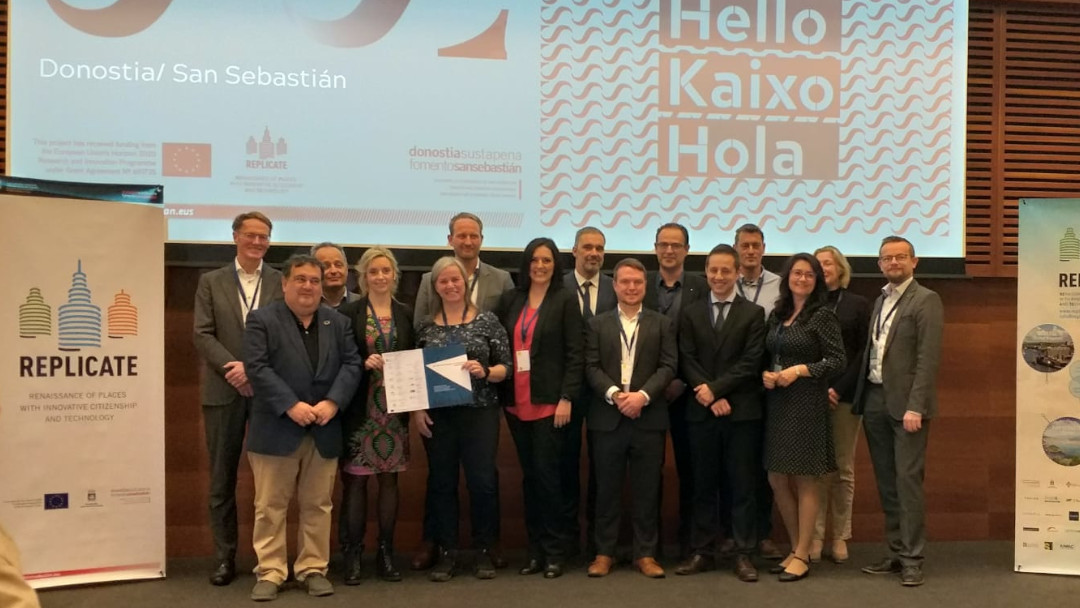Representatives of all European Lighthouse Projects about smart cities met in San Sebastián (Spain) with the aim of signing again a new manifesto of common collaboration, like the previously signed a few months ago, because of the launch of two new projects, Making City and +CityxChange. The first one, coordinated by CARTIF, is a new large-scale demonstration project funded by Horizon 2020 EU’s research and innovation programme, is compound by 34 partners from nine countries and aims to address and demonstrate the urban energy system transformation towards low carbon cities following the Positive Energy District (PED) concept.
The signing of this Manifesto seals cooperation and collaboration within the Lighthouse Project Community, whose main goal is to improve life in European cities. These projects work on urban regeneration strategies in Europe through actions in the fields of energy efficiency in buildings, sustainable mobility and information and communication technologies to develop better services for citizens, as well as the replicability of these solutions in other cities, data management, business models or analysis of non-technical barriers. Two more projects coordinated by CARTIF are part of this group, REMOURBAN and mySMARTLife.
Considering that the challenges faced by these projects’ consortiums are similar, the collaboration emerged between the first three projects of the first H2020 call, REMOURBAN, TRIANGULUM and GrowSmarter, to which the following ones were added.
The signing of this document represents a crucial step in the European Union’s efforts to optimize the research results obtained in these projects and ensure that they are integrated beyond the projects themselves.
